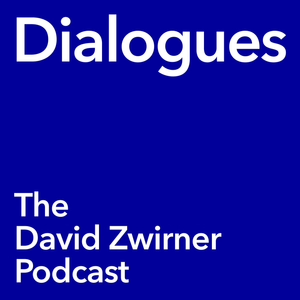
Episode 12: Nigel Greening from Felton Road on the Role of Animals in the Vines
01/17/21 • 42 min
We continue our celebration of Regenuary with our interview with Nigel Greening, proprietor of Felton Road in Central Otago, New Zealand. Nigel discusses the role of animals in the vines and the winery’s ecosystem.
Nigel explains the difference between sheep (which are grazers) versus goats (which are browsers) in managing their wild rose population. While some believe the best way to restore land is by removing grazing animals, Nigel believes the contrary--their highland cattle has helped restore soil fertility and encourage grass growth. He also shares their experience with helping raise New Zealand endangered native falcons and managing birds, rabbits and other creatures in the vines.
Photo: The Family of Twelve
We continue our celebration of Regenuary with our interview with Nigel Greening, proprietor of Felton Road in Central Otago, New Zealand. Nigel discusses the role of animals in the vines and the winery’s ecosystem.
Nigel explains the difference between sheep (which are grazers) versus goats (which are browsers) in managing their wild rose population. While some believe the best way to restore land is by removing grazing animals, Nigel believes the contrary--their highland cattle has helped restore soil fertility and encourage grass growth. He also shares their experience with helping raise New Zealand endangered native falcons and managing birds, rabbits and other creatures in the vines.
Photo: The Family of Twelve
Previous Episode

Episode 11: Jordan Lonborg (Viticulturist of Tablas Creek) on Being the First Regenerative Organic Certified Winery
Today, we celebrate #Regenuary with Jordan Lonborg, viticulturist of Tablas Creek. Tablas Creek farms 120 acres of Rhone varieties in Paso Robles, California. They were certified organic in 2003. They have been farming biodynamically since 2010, and received their biodynamic certification in 2017. They are the first Regenerative Organic Certified (ROC) winery by the Regenerative Organic Alliance, established in 2017. The 3 main pillars of the ROC include soil health, animal welfare, and farmworker fairness. ROC aims to sequester carbon in the soils that would otherwise be released in the atmosphere, and helps combat climate change. ROC requires minimal irrigation with the idea that healthy soils need less water.
Jordan and I talk about these 3 pillars, including regenerative farming, climate change, tilling, carbon sequestration, cover crops, mob grazing, bees, compost and biochar, and lastly, animal and worker welfare.
Instagram: @tablascreek
Website: tablascreek.com
Next Episode

Episode 13: Mimi Casteel (Hope Well Vineyard) on Tilling
We conclude Regenuary with our interview with Mimi Casteel. Mimi is one of the preeminent voices for regenerative agriculture and no till, which she practices at Hope Well Vineyard in Eola-Amity Hills, Oregon.
Mimi explains the advantages and disadvantages of tilling, one of which is the release of carbon into the atmosphere, contributing to climate change. She addresses what she believes are necessary changes to farming subsidies and viticultural regulations if we are to achieve a sustainable future.
Instagram: @mimicasteel
Website: hopewellwine.com
Photo by: Aubrie Legault
If you like this episode you’ll love
Episode Comments
Generate a badge
Get a badge for your website that links back to this episode
<a href="https://goodpods.com/podcasts/ungrafted-293197/episode-12-nigel-greening-from-felton-road-on-the-role-of-animals-in-t-38353945"> <img src="https://storage.googleapis.com/goodpods-images-bucket/badges/generic-badge-1.svg" alt="listen to episode 12: nigel greening from felton road on the role of animals in the vines on goodpods" style="width: 225px" /> </a>
Copy




